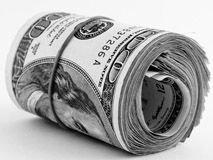The savvy dentist: How to control and eliminate personal debt

Dr. Doug Carlsen retired at age 53 from a 25-year restorative practice. He never produced $1 million, yet was able to be financially free at an early age. Now he is sharing some of his secrets to financial success with you.
Psychotherapist Phil Tyson lists two factors involving the psychology of debt.
First is a psychological principle he labels “future discounting.” We often take on debt giving little thought to how we need to change our lives to accommodate it.
Your beat-up 12-year-old car has had it! You and your spouse go to the local dealer to buy an Accord or Camry. After an hour, you sign a loan for a new Toyota Highlander AWD for $45,000 ⦠$15,000 more than you’d talked about! You rationalize that not only will it last longer than a Camry, but that one of you will make more money next year to help pay for it.
Dr. Tyson’s second principle is the relationship between consumption and personal identity. “Advertising has brainwashed us all to consume brands that provide us an identity. Our self-esteem becomes captive to products.”
For some men, that identity may be an auto. For women, it may be the latest Chloe or Burberry bag. For many couples, it’s their home or where the kids go to school. Any choice we make to improve our self-esteem comes at a price.
More from Dr. Carlsen: The millionaire dentist Part 1Part 2Part 3
What are the major debt problem areas for families today?
Revolving credit card debt
If you don’t do anything else, please eliminate credit card debt. Many families carry well over $50,000 in revolving debt, often paying over $10,000 annually in interest.
Home mortgage
Charles Farrell, author of Your Money Ratios, points out that the maximum amount of mortgage debt should never be more than twice your net family income.
Farrell also makes it clear that your primary residence value increases only at the rate of inflation over many years.
What if your mortgage is more that double, as is the case for many? Be very careful about any upgrades, as they will kill your ability to save.
Home equity line of credit
This is one of the main reasons millions of Americans were under water on their homes from 2007 until today. If you look at mortgage amortization charts, you’ll see that after 10 years of payments, you’ll have paid less than 20% of your home off! Add in a new kitchen or a pool and you are down to zero.
Pay cash for any upgrades or maintenance on your home.
Practice debt
Be wary of the sequel practice loan. After paying off a major first practice loan, doctors often see that $5,000 to $8,000 payment disappearance as an entrée to a trophy home mortgage. That missing payment is either your invitation to save real money for retirement and college savings, or to impress your dental colleagues.
More from Dr. Carlsen: